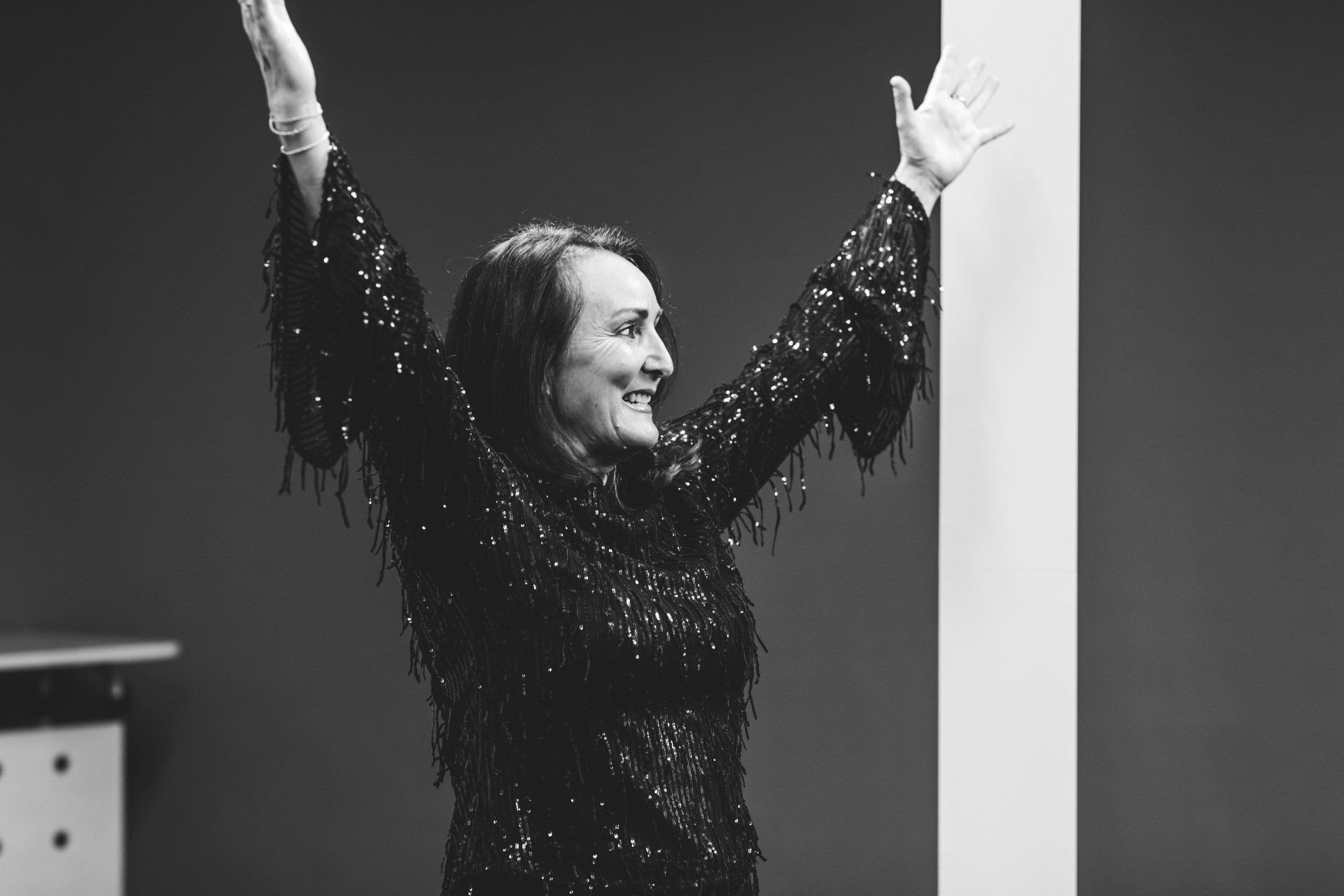Does Life Scare You?
Lee Kelly • March 12, 2021
Some things to remember when you’re feeling terrified of failure.
I recently had a conversation with my 21-year-old daughter.
She’s a 2nd-year student studying animation. It’s tough. Much more technical than she anticipated and being a perfectionist, she struggles with not receiving top marks. Her dream is to be involved in the film industry and a degree in animation is the path she has taken. Yet, she questions it. She wonders if it’s right for her.
She’s scared of failing, not only the course but of reaching her potential.
“Sometimes I’m just so scared I won’t achieve my goals — that I’m not good enough to reach my dreams.”
As I listened to her, even though there are 34 years between us, I thought, ‘touche’.
When do we ever not feel scared of life?
When do we ever feel we’ve ‘made it’, achieved all our goals, reached our dreams?
I don’t think it ever ends.
At 21, I often felt scared, a bit lost, uncertain. At 55, I’m still a bit scared, not so lost or uncertain, but often on the edge of, “Help, what’s next?”
So what are some ways to help with the fear of not achieving our goals and dreams?
Realise you’re not alone
Most people feel like this at some point in their lives.
Sometimes it never really goes away — lurking just beneath the surface.
It’s easy to look at others and think they have it all together — achieving all their goals, living their dreams with such ease.
I guarantee if you scratch a little below the surface of most people’s lives, there is fear and uncertainty. It may not be a lot, but it’ll be there.
Every human is striving for something — from the basic survival needs of finding food, shelter and warmth, to reaching their highest visions for life.
And that’s scary.
What if I starve?
How do I pay the rent, mortgage, power this month?
What if I’m mediocre?
What if I end up old, lonely, poor, sick, depressed?
You’re not alone.
Talk to someone about your fears. Be vulnerable. Let them share theirs.
Listen. Empathise. Laugh.
It will help you both.
Nothing is Wasted
My daughter worries she’s wasting her time doing a degree that may not be what she really wants to do.
In my 20’s I received a Diploma in Massage Therapy and worked as a massage therapist for several years. My path changed as I got married, had children and put my energies into other areas.
I joined Toastmasters, became passionate about public speaking and set up a business teaching public speaking within the corporate sector.
Ten years ago I went through a divorce, changed my lifestyle, left the city and moved to a small alpine village. Very quickly I needed to find a way to earn money. I saw an advert for a massage therapist in a day spa.
Now, I manage my own mobile massage business, offer public speaking coaching and travel overseas as a Tour Leader.
I’m surprised I’m still massaging. When I gave it up over twenty years ago I didn’t expect to still be doing it today!
Nothing is wasted.
Life is not predictable and we just don’t know how our learning and experiences will be utilised over the course of our lives.
Relax
It always works out. It really does. Sometimes not in the way or timing we expect.
But isn’t that the juice of life? Being surprised. The unexpected. The random events and experiences that shape our lives.
We often put incredible pressure on ourselves to reach our goals and to do so in the allocated time frames we create.
And then, we don’t. We do something else. Life goes in a different direction. We make different choices. Some good. Some foolish.
How do you judge that?
In the end, it’s all learning, growth, expansion. It’s life!
Relax and try to enjoy the process. And if this line makes you cringe, take a deep, slow breath in…and out…it’s all going to be ok.
Be Flexible
I have different specific goals and dreams now to what I had when I was younger. I dreamt of a career in television, an apartment of my own, a sporty car, world travel, a family, write a book.
Have I achieved these goals I had as a 20-year-old?
Yes and no.
I did own a sporty metallic blue BMW convertible mid-life-crisis car for a short period. I thought it would help me feel alive and free. It didn’t!
I now experience immense joy and freedom on my sleek, orangey-red mountain bike.
I have not had a career in television, but I work as a public speaking coach helping people find their authentic speaking voice and as an MC at events like weddings and conferences. Not quite TV presenting but using my presentation skills to bring information and inspiration to audiences.
I’ve never owned my own home or had an apartment but I’ve lived in some gorgeous houses with stunning views of lakes, mountains and nature.
Yes, I’ve created a family and mothered six children to adulthood. I didn’t plan to get divorced. It happened.
World travel? Plenty and my latest gig is a tour leader for a local company. One of my massage clients is the owner.
During one of our massage sessions, he asked,
“Would you like to run one of my tours?”
“Sure, where do you go?
“Where do you want to go?
“Africa?”
Last year I travelled to Africa as a tour leader! A safari in Kenya and Tanzania for three weeks with a group of seventeen awesome people. I didn’t plan that! I simply had a desire for ‘world travel’ and asked the question of the universe, ”How do I get to Africa?”
I haven’t written a book…yet. I’m writing on Medium. It’s a start!
I’m flexible with how my life pans out. This allows all sorts of possibilities to flow in.
Be flexible and be prepared to be deliciously surprised.
It’s OK to feel scared
Be kind to yourself when you feel scared. You’re not a failure or abnormal.
Take little steps forward.
Remember how far you’ve come and what you’ve achieved in life so far.
I reminded my daughter she’s almost finished her second year of the degree. I asked her what she’s really enjoying about it. Her voice lifted and she excitedly told me of the group projects she loves where her leadership abilities shine.
“And I can’t wait for next year when we work on real film sets and I can experience producing and directing.”
Feeling scared is a natural part of living.
It helps to remember when we feel fear around moving forward into something new, it’s because we’re expanding, growing, changing.
See it as a sign of progress, accept it’s inevitable, take a deep breath and step forward into your vision for yourself.
My daughter has discovered a line in a song she finds soothing to her fears and inspires her to keep going even when terrified of failure.
“If your dreams don’t scare you, they’re not big enough.”
(Life of Dillon — Dreams)

I discovered Power Posing several years ago when I listened to a TED Talk by Amy Cuddy , a Social Psychologist from the Harvard Business School. Her studies affirm what I have been observing for years as I coach people to become aware of their body language, how it affects the way they feel and how they speak in public. Amy selected two groups of MBA students. One group sat or stood in positions of low power - bodies closed, legs crossed, arms folded, shoulders hunched forward. The second group sat or stood in positions of power - arms straight out to the side or above their head, shoulders open and back, legs in a wide, open stance. Both groups held these open or closed body positions for 2 minutes and then their saliva was tested. Amazingly, the power poser's showed a 15% increase in testosterone , the hormone that configures our brain to be more assertive, confident and creative. The low power poser's showed an increase in cortisol, the stress hormone. Both groups undertook a series of games and exercises after the posing and the power poser's showing greater rates of concentration, aptitude and creativity. We can change the physiology of our bodies simply by changing the the way we position ourselves. When preparing to speak in public, it is important to be aware of our body language - before and during our presentation. Power Posing is a quick and easy way to help combat nervousness and prepare us to speak with more confidence and assertiveness. It can help us feel more powerful. Find a quiet place to open your body for 2 minutes - hold a power pose and literally feel and know your energy is increasing. When waiting for your turn to speak, make sure your body is open - stretch your arms above your head, out to the side, roll your shoulders back. If sitting in a chair, be as open as you can - uncross your legs, straighten spine, roll shoulders back. Take a deep breath. Power posing is a fantastic way to prepare yourself for any life activity. And if you want to increase your confidence and presence as a speaker, power posing is an incredible tool.

How do we prepare and harness our mind before speaking? Why is this important? I've learned, the thoughts we keep thinking create beliefs about ourselves affecting how we live our lives and how we perform as a presenter. I always invite the people I'm coaching to investigate the dominant thoughts and beliefs they have about themselves. I ask them to do a 'brain dump' of all the negative, limiting thoughts they have. And these are often just the ones they're aware of! So many of our beliefs are unconscious and have been learned in childhood or passed down to us through our families. Often they begin with thoughts and beliefs specific to public speaking: "I speak too fast", "I stutter and garble my words", "I say um all the time", "I always forget my words", "My stories aren't interesting", "I hate the way I sound". Then as we peel back the layers, the negative thoughts and beliefs become more encompassing: "I'm a terrible speaker", "I'm scared of what people think of me", "I'm scared of being judged", "I don't feel of worth", "I'm not good enough". The most consistent and underlying limiting belief I've discovered is: "I'm not enough". Who am I to be sharing my thoughts, ideas and stories with you? Who do I think I am? I'm just not worthy, not good enough, not interesting enough, not clever enough, not attractive enough, just NOT ENOUGH!! The first step to overcoming and replacing these limiting thoughts and beliefs is to become aware of them. Catch them as they subtly and sneakily enter your mind. Don't beat yourself up for having them. Just observe and replace them with kinder, more affirming thoughts. "I speak too fast" to "I'm a well paced and measured speaker" "I say um all the time" to "I use pauses effectively" "I always forget my words" to "I remember my words with ease" "I'm a terrible speaker" to "I'm a confident speaker" "I'm not enough" to "I'm enough" An Affirmation is a short, powerful phrase we repeat to ourselves as often as possible so our mind begins to believe and act upon it. Remember a belief is simply a thought we keep thinking. Change our thoughts, change our beliefs, transform our lives. When we first create an affirmation it can be hard to believe and our mind condemns it. We know we always forget our words! We know we're a terrible speaker! This is the moment when you need to trust the process . Trust, as you replace a limiting thought with a new, affirming thought encouraging a new way of thinking or being and then repeating this thought as often as you can - your mind will come to believe this thought and a new belief is created. Your external world will then begin to reflect this new belief. Affirmations can seem too simple to be believable. Try them, they work! Luke and Mr Kuze When my son Luke was a 14 year old school boy, his favourite class was Japanese. He excelled in learning this language and he had an amazing memory. It was time for the yearly Japanese speech and Luke had prepared well. He knew his speech perfectly and planned to present it using no notes. Yet, a little nagging voice inside kept saying, "You might forget your words", "You should use cue cards just to be safe". The class was encouraged by the teacher Mr Kuze to use cue cards if they needed to - after all, it was a different language. But Luke knew he could remember it so why was he having this thought of needing cue cards? We talked about it. I asked him where this thought had come from? Why did he think he needed cue cards when he was so sure he would remember his speech? On reflection he realised the rest of his classmates were all using cue cards and this was the expected and encouraged thing to do. Luke was doubting his own ability and hooking into the belief that cue cards were necessary because a Japanese speech would be too hard to remember perfectly without them! Once this limiting belief was uncovered, Luke replaced it with, "I remember my Japanese speech perfectly" ,"I'm well prepared and speak confidently without cue cards". However, on the day of the speech, Luke had his cue cards tucked discreetly in his shorts pocket. Speakers before him all used cue cards and when it was his turn, he walked up to the front of the classroom and pulled out the cue cards as everyone else had. After speaking for a few moments, he realised the cue cards were a hindrance - his speech was flowing and he remembered everything he'd prepared. The cue cards disappeared back into his pocket and he finished his speech reinforcing the new belief - "I'm an amazing, confident speaker and I remember all I want to say!" As Luke sat down, Mr Kuze stood up, clapped his hands and exclaimed, "Excellent, Excellent". Luke received the top mark in the class for his speech. He also learned the power of harnessing his mind.

When it comes to speaking in front of others, the most powerful non verbal body language we engage in is what we do with our eyes. I remember when I was at high school and preparing to give one of the dreaded yearly speeches in English class. The teacher advised us to just fix our eyes on a spot at the very back of the room if we were feeling nervous. I was 16, it was my sixth form year and I was required to give a speech on someone famous. I chose Donald Duck! I learned my speech perfectly, I was well prepared, but I was terrified. I hated public speaking and managed to avoid any classes or activities that required standing up in front of a group of people. As I sat at my desk waiting for my turn to speak, the fear was so intense I wished I was dead. My name was called, I walked to the front. I didn't need notes as I'd memorised it. I faced the class...but I couldn't look at them. It was just too intimidating. The advice to look above them at the back wall was forgotten. I turned away from those faces watching me and gave my speech looking out towards the windows. Not once did I catch the eyes of my classmates! How do you think it went? Did I make an impact? Did I connect? Well, my friends remembered little about my speech and the history of Donald Duck. They have never forgotten how I refused to look at them as I spoke. I was teased for years! Consistent and continued eye contact as we speak is how we connect with others. As we connect with our eyes we can feel into the essence of the other person, we can really see them - who they are, their integrity, their honesty, their authenticity in that moment. And they see us! When we are public speaking, eye contact is essential for us to reach into our audiences hearts and convey the messages we're sharing. How much eye contact is enough? It's good to aim for 2-3 seconds of eye contact from one person to the next. This can depend on the size of the audience you're speaking too. In a small to medium sized group, aim to sweep your eyes over the whole group so they all feel included. It's important to not just flick your eyes around without a meaningful connection with anyone. Aim to pause for those few seconds and feel the connection. In a larger audience, aim to connect eyes with those in the first few rows of people and as far back as you can. As you make the effort to fully engage with your eyes, it becomes a natural and easy thing to do. When we're nervous it's tempting to not look at anyone and instead focus on our notes, the roof, the back of the room etc...However if we can have courage and find a friendly face, meet their eyes, pause for 2-3 seconds, really feel into that connection, then there is a wonderful exchange of energy and support that takes place. You feel supported. They feel seen. Your words have much greater impact and power. Practice using more eye contact in your daily life with the people you come into contact with. Think about the 2-3 second timeframe. Try going longer and see how that feels. In the courses I run I often get the group to hold eye contact with each other for up to 10 seconds! This is an intense experience and good practice to realise how easy 2-3 seconds is. As you practice your daily eye contact, become aware of how you feel as you consciously hold the connection with the other person. Bring this into your public speaking and see what happens. You'll be transformed into an authentic, powerful speaker!


